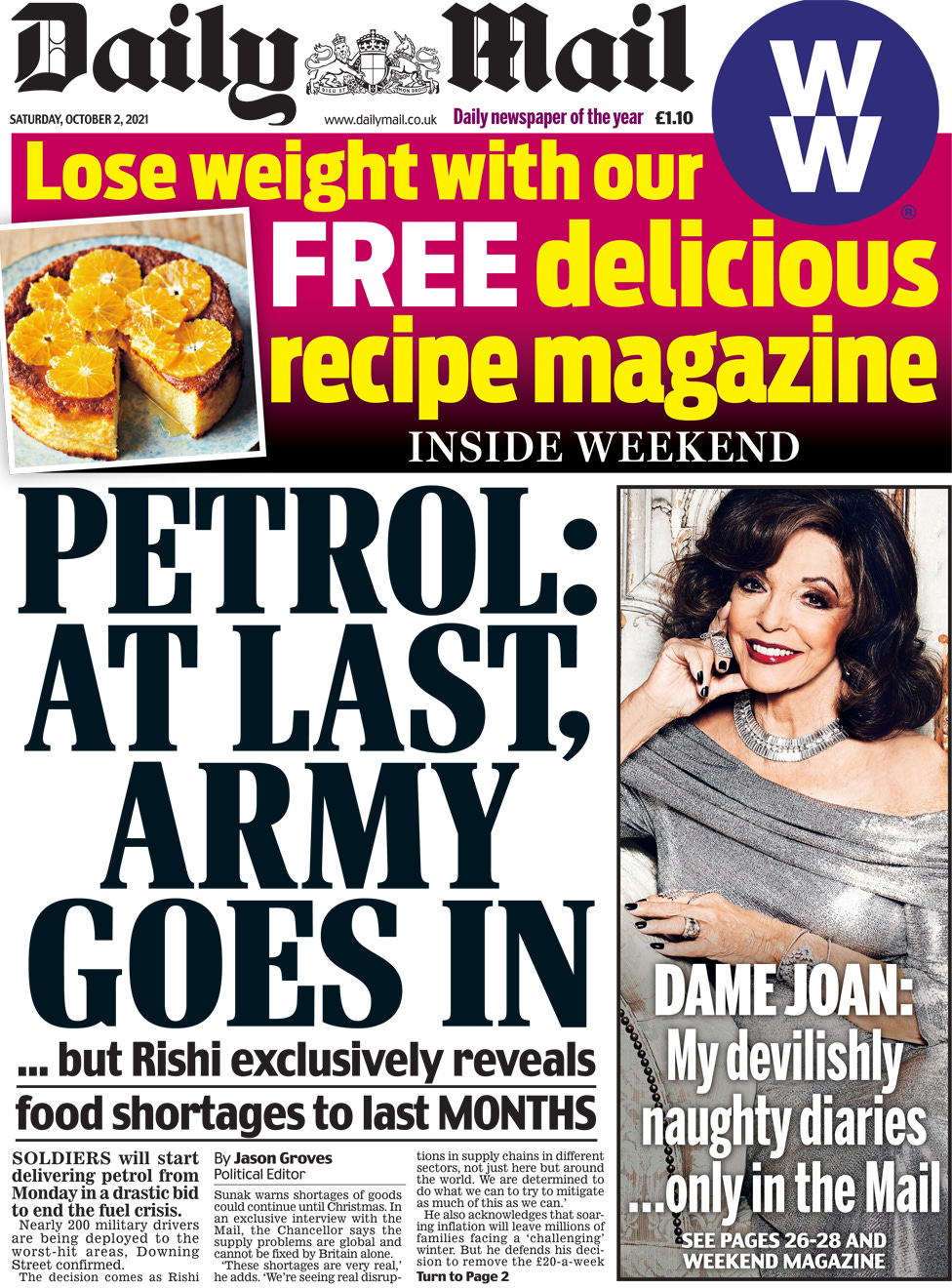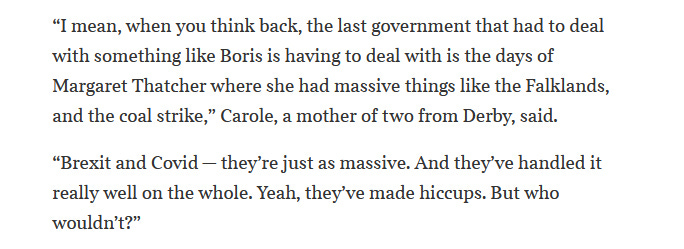Death by a Thousand Cuts: A Conservative Winter's Tale
The Household Support fund is “an admission that the social security safety net does not meet basic living needs,” according to Director of policy and campaigns at Action for Children, Imran Hussain, and “a fraction of what is needed” as the Universal Credit uplift is cut.
Essentially, it’s a re-hash of last year’s Winter Covid scheme that has been branded, among other things, “a disgrace” and “an insult” by the SNP’s Nicola Sturgeon, who adds that the scheme, “is taking £6bn out of the pockets of the lowest income families through the Universal Credit cut, and is expecting praise for putting £500m back.”
Indeed, Helen Barnard, Deputy Director at the Joseph Rowntree Foundation, said, “The Household Support Fund is an eleventh hour attempt to save face as the Government presses ahead with an unprecedented overnight cut to Universal Credit.”
Damning words, even as the Chancellor Rishi Sunak states that the government is “committed to ensuring” that “everyone should be able to afford the essentials” and the scheme will provide “a lifeline.”
It won’t, of course.
An End to Austerity? Really!?
On one hand, it is a government not keen to repeat the same steps as the last Conservative administrations - which some within the party believed was a ‘success’ [as described by Jacob Rees Mogg] - while simultaneously making cuts to the budget allocated to social welfare.
“Highly visible” ones, too.
Visible to the extent that last year when these cuts were announced, the Resolution Foundation think-tank came to the conclusion - in an excellent article - that they were actually worse than George Osbourne’s pledges to cuts made in 2015; an extension of economic policy handed over from the previous Conservative/Liberal Democrat coalition, which was described by the UN, no-less, as a breach of international human rights obligations.
“Seriously concerned,” said the UN, that “the disproportionate adverse impact that austerity measures” had on disadvantaged and marginalised individuals and groups.
“Deeply concerned,” said the UN, about “the various changes in the entitlements to, and cuts in, social benefits” and how they adversely affected, “women, children, persons with disabilities, low-income families and families with two or more children.”
Professor Philip Alston, United Nations Special Rapporteur on extreme poverty and human rights, meanwhile, said [on austerity] in 2018:
“Much of the glue that has held British society together since the Second World War has been deliberately removed and replaced with a harsh and uncaring ethos. A booming economy, high employment and a budget surplus have not reversed austerity, a policy pursued more as an ideological than an economic agenda.”
A “great misery”, Alston said, inflicted on the British public with, “punitive, meanspirited and often callous austerity policies.”
What both reports obviously failed to contend with was COVID.
It also didn’t factor in the various impact assessments - including that of the Office for Budget Responsibility - following our departure from the EU.
On COVID in particular, the British Medical Journal referred to the Marmot Review, and concluded:
“A failure to control the coronavirus pandemic, coupled with widening inequality over the past decade, has led to England having the highest rate of excess deaths from covid-19 in Europe.”
And now, as Rishi Sunak states that the government is “committed to ensuring” that “everyone should be able to afford the essentials” and the Household Support fund will provide “a lifeline”, Ofgem have raised the price cap on gas and electricity - incurring an estimated additional cost of £150 a year on 15 million households - and the government has suspended furlough, leaving an estimated 1 million people still on the scheme uncertain, and in excess of 250,000 facing possible redundancies.
Homeless charity Crisis have also warned that the cut to the Universal Credit uplift could leave 100,000 people living in rental accommodation facing eviction.
Do they know it's Christmas time at all?
Actually, the Financial Times says that it could come sooner - Autumn, in fact, according to Federation of Small Businesses’ Craig Beaumont who describes an “Autumn storm” of “headwinds for business of tax increases, rising costs, labour shortages and supply chain disruption”.
This will inevitably be a precursor to winter when supermarkets and retailers attempt to stock their shelves in the run-up to the Christmas period - issues further compounded by the HGV driver shortages as spoken about in previous article ‘Big Trouble in Little Tesco’
Indeed, some have already accepted defeat - such as James Withers, of Scotland Food & Drink who told The Independent, “I don’t think there is anything that can be done now to get the Christmas trade where it should be” and recommended that people should plan ahead and freeze food now in preparation for lack of availability nearer to Christmas.
Pharmacies are being affected also, according to Reuters, who were told by a spokesperson representing large pharmacy operators, "The whole supply chain has been impacted from inbound wholesale depot supply down to outward depot deliveries to pharmacies.”
Reuters also warns of the possibility of meat shortages, too - particularly pig meat - with processors operating at 25% reduced capacity due to shortage of butchers and abattoir workers, being unable to slaughter thousands of pigs for consumption - between 120,000 and 150,000 of which are “potentially a week, ten days away” from being culled, according to Minette Batters, president of the National Farmers Union.
Making matters worse on the HGV Driver front is the seemingly conflicting story of the offer of 5,000 temporary visas to EU lorry drivers and ‘Bonehead’ [7] Priti Patel who, as of Friday [1/10/21] has banned the use of identification cards from the EU and EEC.
Raluca Marian, International Road Transport Union Director said:
'Aside from not seeing the real benefits of adding this layer of bureaucracy, and potentially affecting already difficult border freight flows post Brexit, we are also concerned that passports are generally more expensive than ID cards.’
But it’s fine [#1] because Boris Johnson is going to ‘get the army in’ - with “around 200 soldiers” being drafted in to help ease the fuel crisis - to the absolute joy of the flag-waving patriots at the Daily Mail who have presumably ignored previous assurances by the government that the crisis at the petrol pumps was “easing” for consumers, and “under control”, and treat Sunak’s comments on food shortages as a mere afterthought
But it’s fine [#2] because Boris Johnson has issued 300 temporary visas to foreign workers in a screeching, whiplash inducing u-turn revealing that as it turns out, we really did need them more than they needed us.
[And their poultry, too, it turns out - as Poland and France are set to import millions of turkeys for the UK to eat this Christmas]
Problem is, as per ‘Big Trouble…’ - 500 drivers to ease the crisis is like “throwing a thimble of water on a bonfire” - with one suspecting that the initial 300 foreign workers [of 5,000 the government is sending for more of] is there to test the water to see how well the Brexit acquiescence goes down among the Conservative voters - if reneging on key manifesto pledges hasn’t done that quite yet.
Looking ahead...
The Times is an otherwise Conservative-backing paper - and although they offer some objective analysis from time to time, they come to the conclusion that despite everything [some of which is written above and treated as a footnote by the Daily Mail] Conservative voters actually appear to have more faith in Boris Johnson than ever.
“Yeah they’ve made hiccups but…” said one Conservative voter.
“I think he’s done a fantastic job, actually. A lot better than I expected,” said another.
But before concluding this article on the topic of the indifference and malaise in British society [which will form the basis of a future article], it’s worth pointing out that Public First, who performed the focus groups where answers like these were given is, according to Open Democracy, “a small policy and research company in London’s Tufton Street” that has recently been “awarded an £840,000 contract for researching public opinion about government policies.”
The owners, it is revealed, are long-term associates of Michael Gove and Dominic Cummings.
Indeed, The Good Law Project is on the case.
By contrast, Opinium conducted a poll recently suggesting that 67% of society find Boris Johnson ‘completely/partly to blame’ - at least on the HGV driver crisis.
This latter poll is probably more accurate - as previous articles on this page have established, and this one, too but looking forward with foresight, as per government policy, we will, sadly, probably see.
What lies ahead for the UK is uncertain however, but as we see the pieces being shuffled around on the front pages of newspapers, it’s clear that apportioning the blame for what comes next is being preempted already - before it has even occurred.
While there may not be a convincing case for blaming the media - as many currently do - for the panic at the petrol pumps, there may be a case in the future where we can reasonably blame the media for trying to influence public opinion in favour of Boris Johnson.
Hope exists when people possess the ability to see the wood from the trees, and although it may not solve any individual or widespread crises you might be subject to in the short term, it does sometimes help to find a root cause - and then fix it for the long-term.
Mainly by not voting for it all over again.







